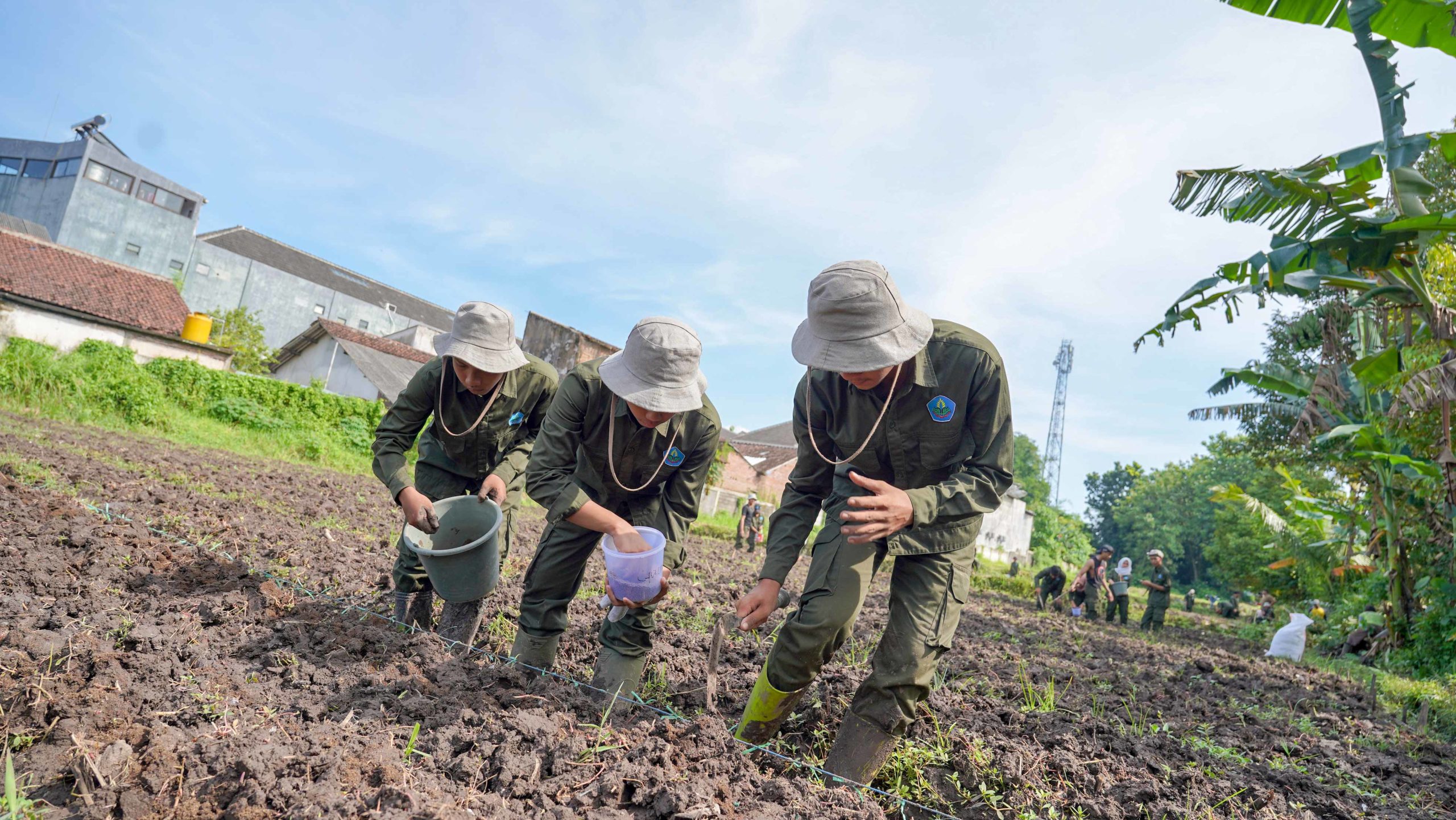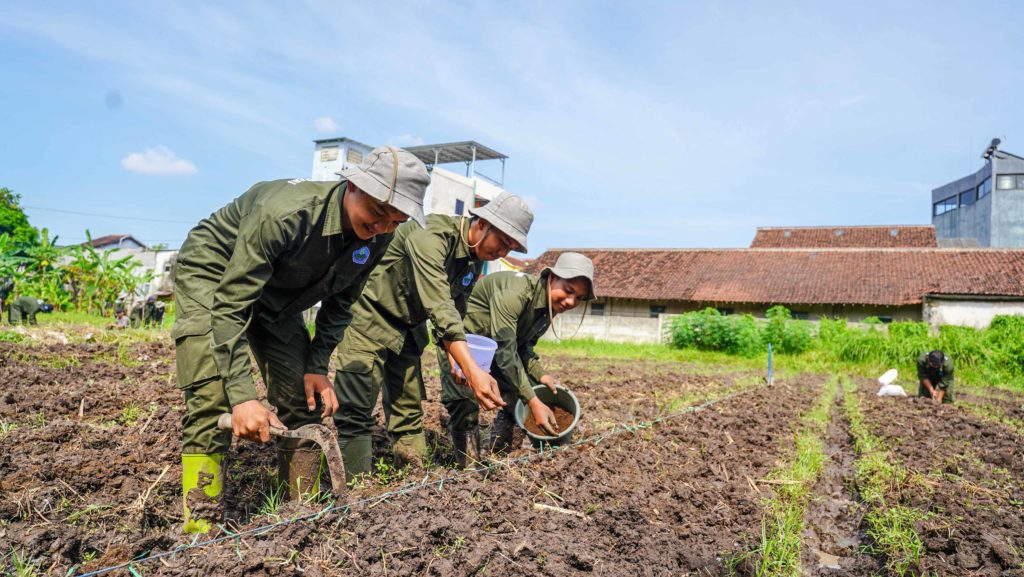

Students of the Seed Production Engineering (SPE) program, Department of Agricultural Production, Jember State Polytechnic (Polije), carried out okra seed planting activities as part of the Project-Based Learning (PBL) method. This activity aims to enhance students’ skills in plant cultivation and strengthen the connection between the educational world and the agricultural industry.
In its implementation, the PBL method involved a team of instructors from various courses collaborating to provide a more comprehensive learning experience for the students. The instructors included Ir. Dwi Rahmawati, S.P., M.P., IPM., who taught the Basic Agronomy course and is the PBL manager, as well as Moch. Rosyadi Adnan, S.Si., M.Sc., also a lecturer in the same course.
Dwi Rahmawati explained that this activity serves as a means for students to understand and practice the theory learned in class.
“Second-semester students involved in this activity are still in the learning phase of plant cultivation. This PBL integrates the Basic Agronomy and Soil Fertility courses and collaborates with PT Tagani, which has an MOU with Polije. The final result of this project will be seeds that PT Tagani will use for the company’s development,” she explained.
She also added that in this activity, students do not only plant but also follow the entire process of okra cultivation from start to finish.
“The stages of the activity include planting, replanting after one week, maintenance, and harvesting. Students are expected to understand the entire seed production process according to the standards set by the industry, so when they graduate, they are ready to work in the agricultural sector,” she said.
This PBL program has become one of the flagship learning methods at Polije because it provides real-world experience for students to develop both technical and managerial skills. The students involved not only understand the theory of plant cultivation but also gain direct experience in working according to industry needs.
Furthermore, the collaboration with PT Tagani benefits both parties. Students learn to use industry standards in the seed production process, while the company gains human resources that are better prepared for work in the agricultural field.
With this activity, it is hoped that graduates of the Seed Production Engineering program at Polije will have superior competence in seed production, be able to adapt to industry needs, and have greater opportunities in the workforce. PBL not only enhances students’ technical skills but also teaches the importance of collaboration, attention to detail, and responsibility in agricultural production processes. (rda)